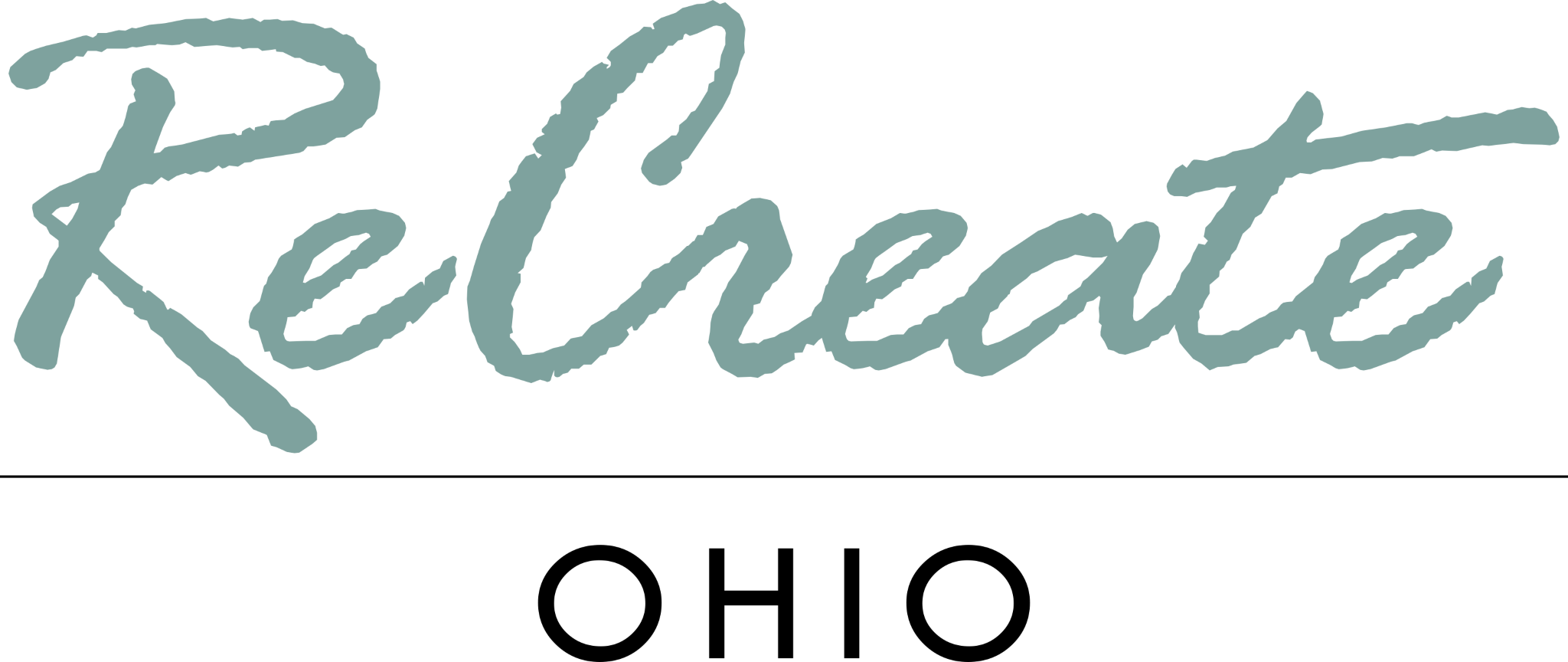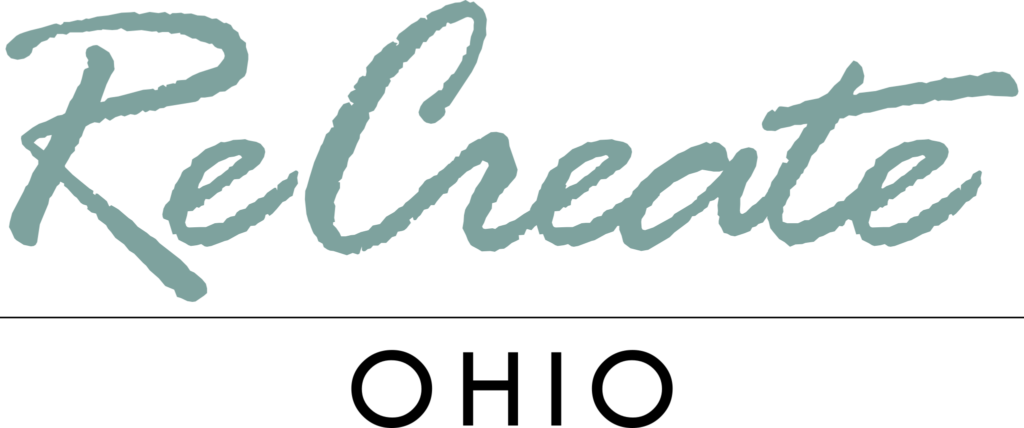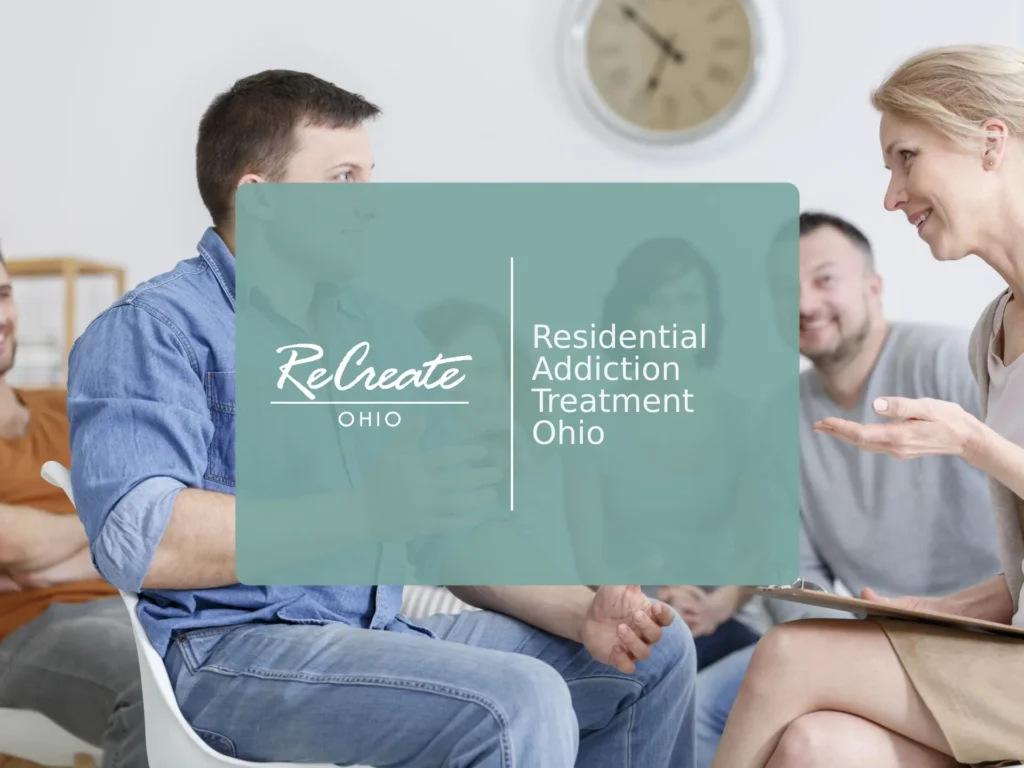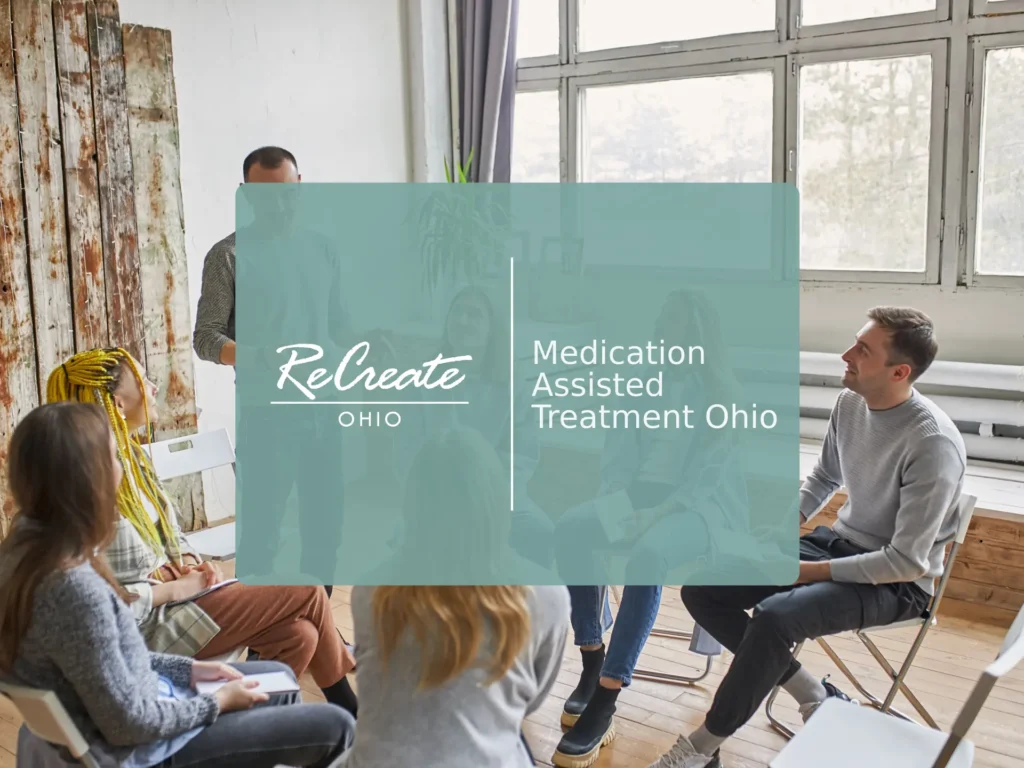Table of Contents
Medication Assisted Treatment Ohio
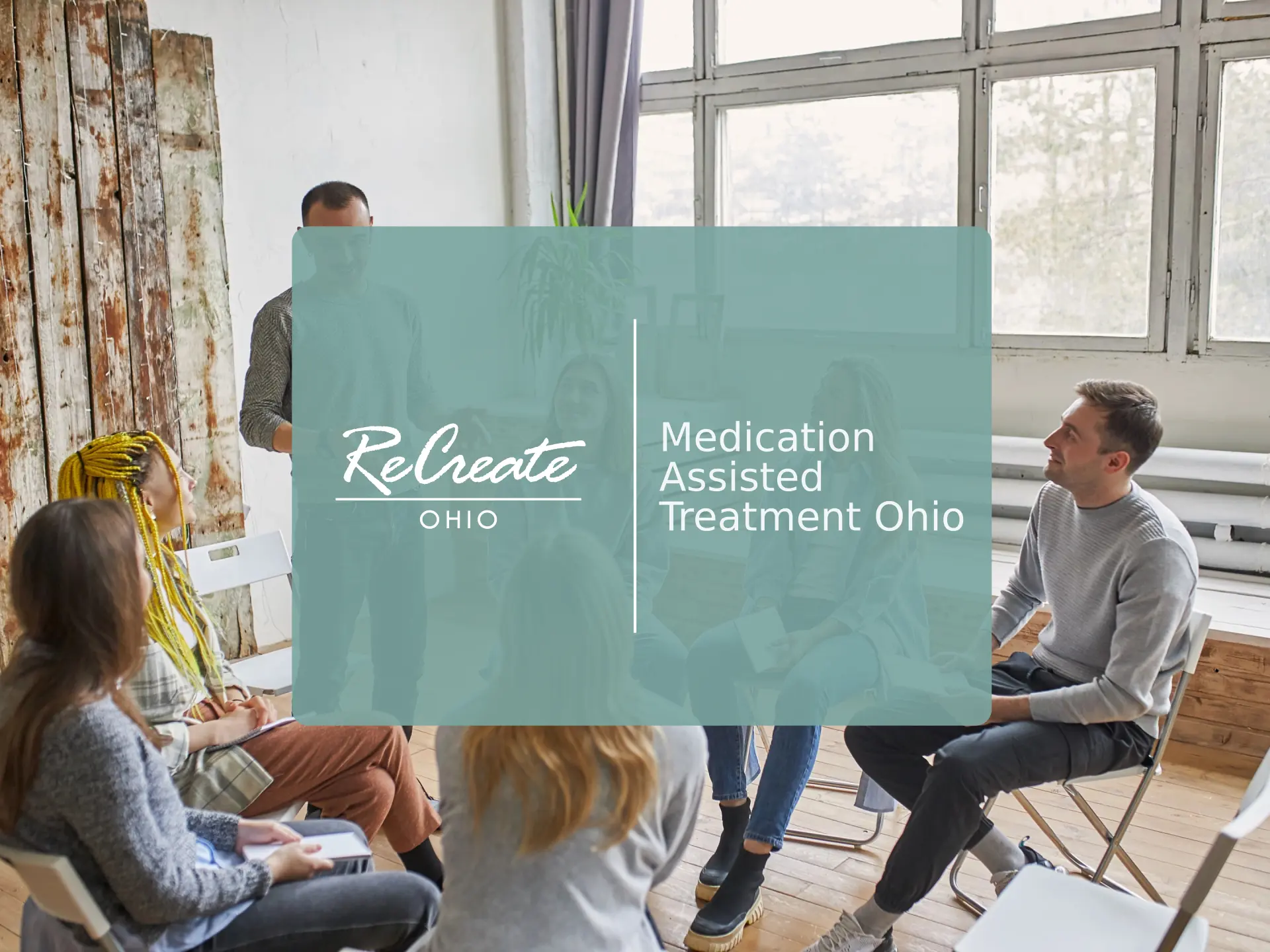
If you’re researching medication-assisted treatment Ohio options, you’ve likely encountered overwhelming information about MAT programs, standalone clinics, and outpatient services. Here’s what many people don’t realize: medication-assisted treatment works best when it’s part of comprehensive care that addresses the whole person—not just prescribed in isolation.
At Recreate Behavioral Health of Ohio, we take a different approach. Rather than operating as a MAT-only clinic, our medical team assesses each individual during medically supervised detox to determine if medication-assisted treatment is appropriate for their unique recovery journey. This comprehensive model—detox to residential treatment with integrated MAT assessment—produces better long-term outcomes than standalone approaches.
Located in Gahanna, just outside Columbus, Recreate Ohio specializes in treating both substance use disorders and co-occurring mental health conditions like anxiety, depression, PTSD, and trauma. Because addiction rarely exists in isolation, and neither should its treatment.
Understanding Medication-Assisted Treatment: What It Is and How It Works
Medication-assisted treatment combines FDA-approved medications with counseling and behavioral therapies to treat substance use disorders, particularly alcohol use disorder and opioid use disorder. These medications work by targeting specific brain receptors affected by drugs and alcohol, helping to ease cravings, reduce withdrawal symptoms, and prevent relapse without producing euphoria.
Think of MAT as addressing the chemical imbalances that addiction creates in the brain, while therapy addresses the psychological, emotional, and behavioral aspects of recovery. The gold standard approach uses both together—medication to stabilize brain chemistry, and comprehensive counseling to heal underlying issues.
The science behind medication-assisted treatment is solid. Research shows that MAT significantly reduces overdose deaths, improves treatment retention, and supports long-term recovery when maintained appropriately. For opioid addiction specifically, MAT can reduce overdose risk by up to 50% compared to abstinence-only approaches.
Why Detox and Residential Treatment Matter for MAT Success
Here’s where many MAT programs fall short: they prescribe medication without addressing the acute medical needs of withdrawal or the intensive therapeutic work required for lasting change. Someone struggling with heroin, fentanyl, oxycodone, or chronic alcohol abuse often needs medically supervised detox first—a critical step that many rehab centers don’t offer.
Not all rehab centers offer detox; however, Recreate Ohio is proud to provide medically supervised detoxification as the foundation of comprehensive treatment. During detox, our medical team monitors withdrawal symptoms 24/7, ensures safety and comfort, and assesses whether medication-assisted treatment may be appropriate based on each person’s substance use history, mental health status, and recovery goals.
This assessment matters because MAT isn’t right for everyone, and the wrong timing or medication can complicate recovery. Our addiction medicine specialists evaluate factors like:
- Type of substance use disorder and severity
- Co-occurring mental health conditions
- Previous treatment history and medication response
- Individual preferences and recovery philosophy
- Medical contraindications or risk factors
Following detox, clients transition seamlessly to our residential treatment program, where they receive intensive individual and group counseling, evidence-based therapies like CBT and DBT, holistic treatments, and ongoing medication management if MAT was initiated. This continuum—detox to residential with integrated MAT—addresses both the physical dependency and the deeper work of rebuilding your life.
Recreate Ohio’s Approach: Treating the Whole Person
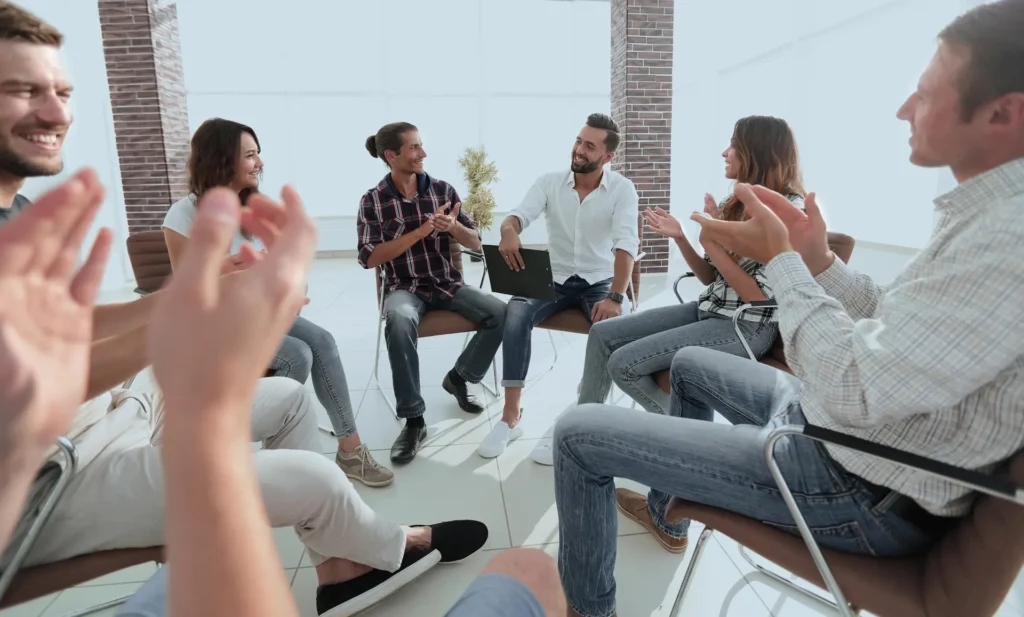
At Recreate Behavioral Health of Ohio, we believe treatment is not one-size-fits-all. Our approach recognizes that substance abuse rarely exists without underlying mental health challenges. Depression, anxiety, trauma, and addiction often feed each other in devastating cycles. That’s why Recreate Ohio specializes in co-occurring disorders—treating addiction and mental health simultaneously through integrated, evidence-based care.
Part of the trusted Recreate Behavioral Health Network, we bring proven expertise to Ohio while maintaining deep community connections. Our beautiful campus in Gahanna offers a serene, non-clinical environment that enhances healing—a peaceful setting where clients can focus entirely on recovery without the triggers and chaos of everyday life.
Our medication-assisted treatment mat program is never standalone. It’s woven into comprehensive care that includes:
- Medically supervised detox with 24/7 monitoring
- Residential treatment in a supportive, structured environment
- Individual therapy addressing trauma, mental health, and personal recovery goals
- Group counseling, building communit,y and shared healing
- Family therapy repairing relationships and creating support systems
- Holistic therapies like art therapy, yoga, and meditation for mind-body healing
- Ongoing medical care with medication management and monitoring
This integrated approach treats the whole person—physical, emotional, mental, and spiritual healing together.
MAT Medications: What’s Available and How They Work
Understanding the medications available helps you make informed decisions about your recovery. In Ohio, several FDA-approved medications treat opioid use disorder and alcohol use disorder:
For Opioid Use Disorder
Buprenorphine (often combined with naloxone as Suboxone) is a partial opioid agonist that reduces cravings and withdrawal without producing the high associated with opioids like heroin, fentanyl, or morphine. Its “ceiling effect” means taking more doesn’t increase effects, reducing abuse potential and overdose risk. Buprenorphine allows people to function normally—working, parenting, living—while their brain heals from addiction.
Methadone is a full opioid agonist dispensed through specialized programs. It prevents withdrawal symptoms and blocks the euphoric effects of other opioids. Methadone requires daily clinic visits initially, making it less flexible than other options, though stable patients may earn take-home privileges.
Naltrexone (brand name Vivitrol, when given as a monthly injection) blocks opioid receptors entirely, preventing any opioid from producing effects. This medication supports abstinence-based recovery for people who’ve completed detox and want protection against relapse. Unlike buprenorphine and methadone, naltrexone has no abuse potential and doesn’t produce physical dependence.
For Alcohol Use Disorder
Naltrexone also treats alcohol addiction by reducing the rewarding effects of drinking, making it easier to resist the desire to drink. Acamprosate helps ease cravings and withdrawal symptoms during early recovery from alcohol abuse by stabilizing chemical imbalances in the brain. Disulfiram creates unpleasant reactions when alcohol is consumed, supporting abstinence through aversion.
At Recreate Ohio, our medical team determines which medication, if any, best supports your recovery based on a comprehensive assessment—not a one-size-fits-all protocol.
Co-Occurring Disorders: Why Integrated Treatment Matters
The opioid epidemic and rising rates of substance use disorders don’t exist in isolation from mental health crises. Research shows that over 50% of people with substance use disorders also have co-occurring mental health conditions. Anxiety drives drug use to calm racing thoughts. Depression makes opioids temporarily lift unbearable emotional pain. Trauma survivors use substances to numb memories and flashbacks.
Treating addiction without addressing mental health—or vice versa—sets people up for relapse. That’s why Recreate Behavioral Health of Ohio’s dual diagnosis expertise makes such a difference. We don’t just treat symptoms; we address underlying issues through evidence-based therapies proven to heal both addiction and mental health conditions together.
Our integrated approach means your care team collaborates across disciplines. Your therapist, psychiatrist, addiction medicine specialist, and counselors work together on one unified treatment plan. Medication management addresses both substance use disorders and mental health needs—whether that’s MAT for opioid addiction plus antidepressants for depression, or anxiety medication alongside alcohol use disorder treatment.
This coordination prevents the fragmented care that leaves gaps in recovery. You’re not bouncing between separate providers hoping someone connects the dots. At Recreate Ohio, we see the whole picture from day one.
The Role of Counseling and Other Supports in MAT Success
Medication stabilizes brain chemistry, but counseling transforms lives. The combination of medication and therapy produces dramatically better outcomes than either approach alone—that’s why it’s called medication-assisted treatment, not medication-only treatment.
At Recreate Behavioral Health of Ohio, counseling happens daily during residential treatment. Individual therapy sessions provide space to process trauma, identify triggers, develop coping skills, and address the root causes of addiction. Group counseling builds community with others who truly understand your struggles, creating connections that combat the isolation addiction creates.
Evidence-based therapies we integrate with MAT include:
- Cognitive Behavioral Therapy (CBT) to change thought patterns that drive substance use
- Dialectical Behavior Therapy (DBT) to regulate emotions and manage cravings
- EMDR to process trauma that fuels addiction
- Motivational interviewing to strengthen commitment to recovery
Family therapy repairs damaged relationships and educates loved ones about supporting your recovery journey without enabling. Our holistic treatments—art therapy, yoga, meditation, mindfulness—heal the body and spirit alongside the mind.
This comprehensive support system gives clients every tool for long-term recovery. The medication manages physical aspects of addiction while counseling and other supports rebuild the life addiction destroyed.
Take the First Step Toward Comprehensive Recovery
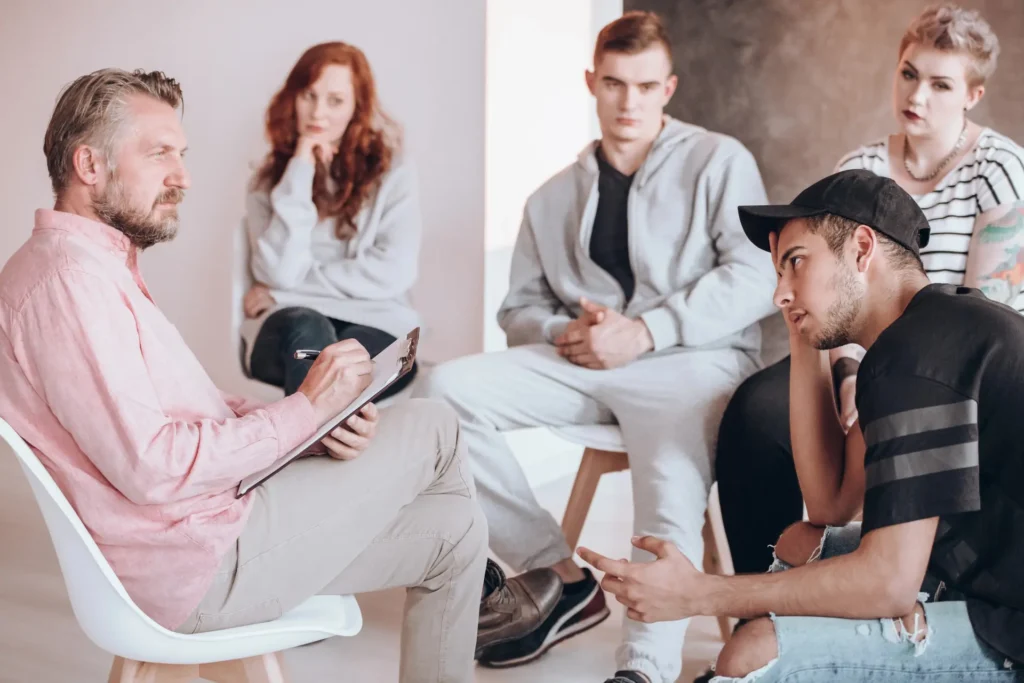
If you or someone you love is struggling with opioid addiction, alcohol abuse, cocaine, benzodiazepines, or other substances—especially with co-occurring mental health challenges—you’ve found the right place. Recreate Behavioral Health of Ohio offers the comprehensive care that transforms lives, not just manages symptoms.
Our approach begins with medically supervised detox, where our team ensures your safety and comfort while assessing whether medication-assisted treatment supports your unique recovery journey. From there, residential treatment provides intensive therapy, evidence-based and holistic treatments, and the time and space to truly heal. We meet you where you are and walk alongside you as you rebuild your life.
Joint Commission accredited and licensed by the Ohio Department of Mental Health and Addiction Services, Recreate Ohio maintains the highest standards of compassionate care backed by the expertise of the Recreate Behavioral Health Network.
Located on a beautiful campus in Gahanna—just minutes from Columbus—we’re accessible to all of Central Ohio while offering a peaceful, serene environment that enhances healing.
Don’t wait for the right moment. This moment is the right moment. Contact Recreate Ohio today for a confidential assessment. Our compassionate team is ready 24/7 to answer your questions and help you take the first step toward lasting recovery.
Call Recreate Behavioral Health of Ohio Today to begin your transformation.
Frequently Asked Questions
What is the MAT program in Ohio?
Ohio doesn’t have a single “MAT program”—rather, medication-assisted treatment services are available through various healthcare providers, including hospitals, specialized clinics, private practices, and comprehensive treatment centers like Recreate Ohio. The state supports MAT as an evidence-based approach to treating substance use disorders, particularly opioid use disorder and alcohol use disorder.
What is considered medication-assisted treatment?
Medication-assisted treatment combines FDA-approved medications (like buprenorphine, methadone, or naltrexone) with behavioral therapies and counseling. It’s not just prescribing medication—true MAT integrates medical and therapeutic approaches to treat addiction as the chronic brain disorder it is, addressing both chemical imbalances and psychological factors.
What is the 14-day opioid rule in Ohio?
Ohio law limits initial opioid prescriptions for acute pain to a maximum 7-day supply (not 14 days). For minors, the limit is even stricter. This regulation aims to prevent new opioid addictions by reducing unnecessary exposure to prescription opioids. The rule doesn’t apply to chronic pain management, cancer treatment, palliative care, or medication-assisted treatment programs for existing opioid use disorder.
How much does medication-assisted treatment cost?
Costs vary significantly based on the program type and your insurance coverage. At Recreate Ohio, we’re in-network with major insurance plans including TRICARE, Cigna, Medical Mutual, and Blue Cross Blue Shield. Many insurance policies cover medication-assisted treatment comprehensively, including medications, counseling, and medical monitoring. We provide seamless insurance verification and believe finances should not be a barrier to life-saving treatment. Our admissions team works with each person to understand coverage and explore options.
Sources
- Substance Abuse and Mental Health Services Administration. (2023). “Medication-Assisted Treatment (MAT).” SAMHSA
- National Institute on Drug Abuse. (2024). “Medications to Treat Opioid Use Disorder.” NIDA Research Report
- Ohio Department of Mental Health and Addiction Services. (2024). “Medication Assisted Treatment.” OhioMHAS
- American Society of Addiction Medicine. (2020). “The ASAM National Practice Guideline for the Treatment of Opioid Use Disorder: 2020 Focused Update.” Journal of Addiction Medicine, 14(2S Suppl 1), 1-91.
- Centers for Disease Control and Prevention. (2024). “Evidence-Based Strategies for Preventing Opioid Overdose: What’s Working in the United States.” CDC
- Ohio Legislative Service Commission. (2023). “Ohio Revised Code Section 3719.062 – Opioid Prescribing Limits.” Ohio General Assembly
